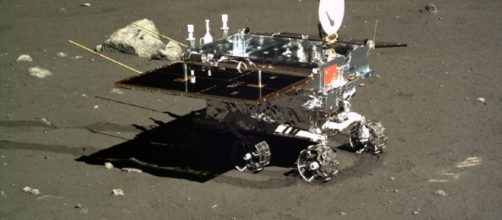While china is currently focused on the moon, with a sample return mission scheduled for 2017 and a landing on the lunar farside for 2018, the country is already looking ahead for more ambitious planetary missions. China’s first expedition to Mars will take place in 2020 with a sample return mission sometime in the indefinite future, according to Space Daily. Also on tap is a program of asteroid exploration and a flyby mission to Jupiter.
China is also planning its own space station in the 2020s and a possible crewed lunar mission by the end of that same decade.
The country is embarked on a long-term, methodical program to become a major space power, rivaling if not surpassing the United States by 2030. By so doing, China will become a dominant super power, challenging the United States on Earth in ten or so years.
China’s plan to become a space power represents a problem for the United States and its allies. A choice of two strategies presents itself.
The first option is to attempt to coopt China, to make it a space partner along with Europe, Russia, and other countries. The idea is complicated by Beijing’s imperialist drive in the South China Sea and its cyberwar campaign against the United States, attempting to hack computer files for national and economic secrets.
The second option is to declare Space Race 2.0 to be open. That choice means that the United States and its allies make sure that western astronauts are on the moon to greet the Chinese when they arrive. It means a stepped up planetary science program, mounting larger and more impressive missions than the Chinese are capable of. The exploration of the moons of Jupiter and Saturn come to mind.
One element of the space race option would be to dangle before the Chinese the possibility of becoming space partners, that is a shift to the first choice, but only if Beijing moderates its behavior on Earth. The choice would be to continue to lose face by being outmatched in space or join a world space effort and enjoy the benefits thereof, but at the price of losing its total independence.

